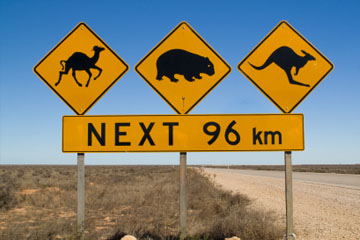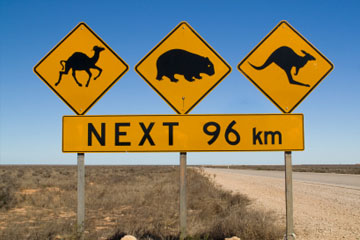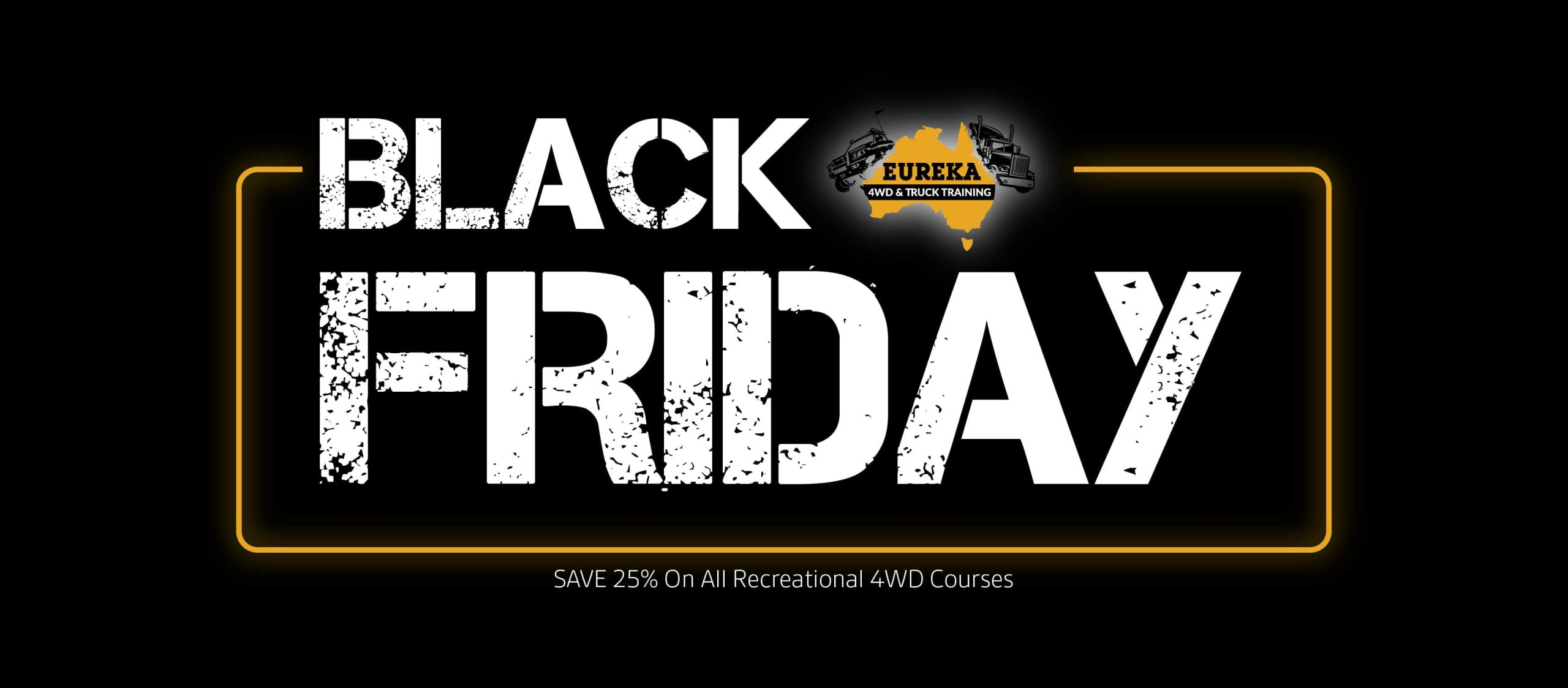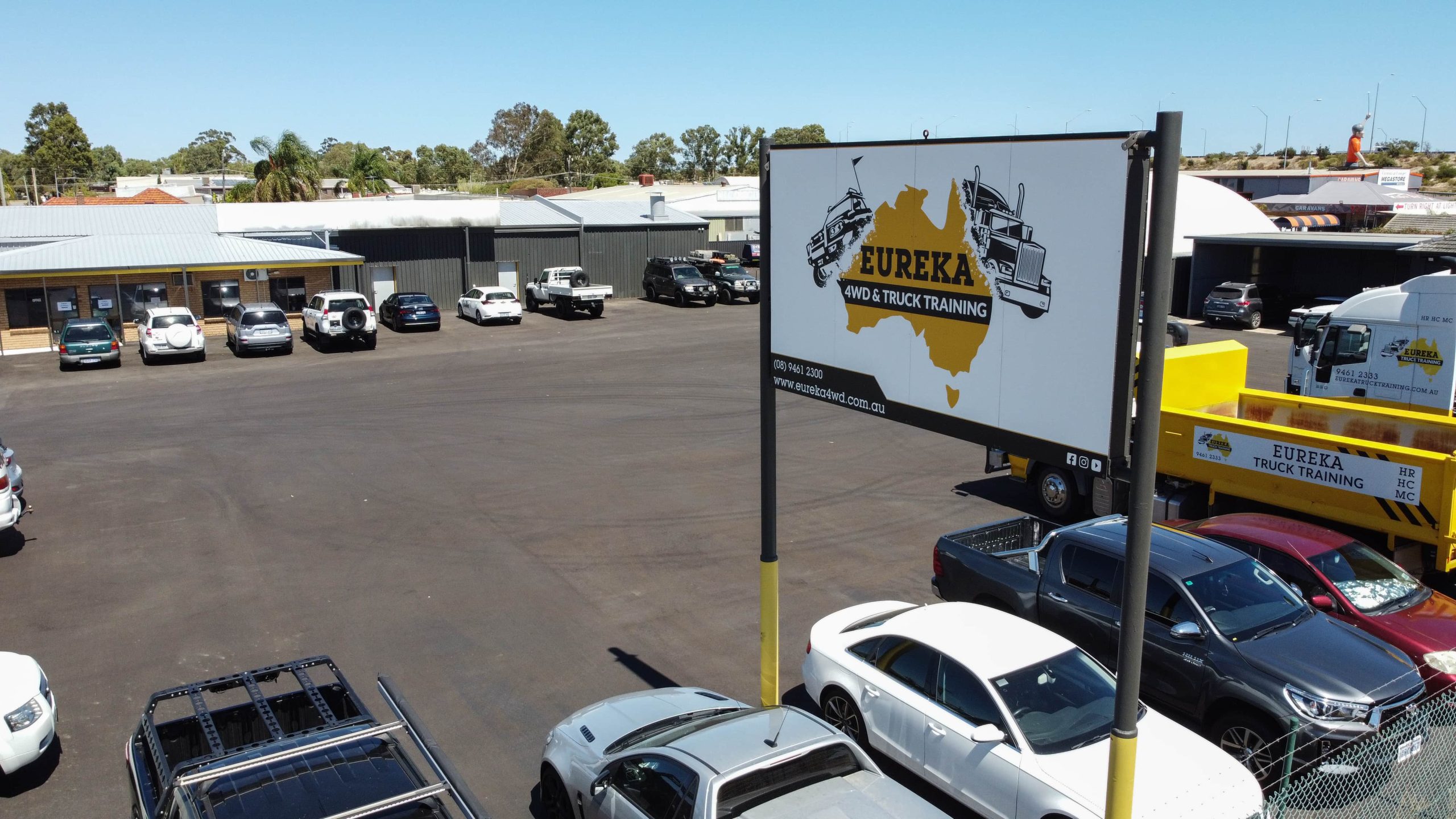Wildlife Animals Accidents
Each year, thousands of collisions between animals and motor vehicles occur on Australian roads. The majority of the animals hit are kangaroos and wallabies. Native animals aren’t the only victims of road accidents; farmyard animals including horses, cattle, sheep and goats can pose serious risks to drivers.
Major highways and roads in some areas of rural Western Australia are unfenced, increasing the risk of accident when wild and pastoral animals wander across them. Animals can be drawn to the roadside to feed, attracted by the lush vegetation that results from water runoff from the road surface. Of the native animals, kangaroos, wallabies, possums, birds and reptiles are most likely to be hit. Scavengers, such as eagles and other birdlife may feed on the carcasses of wildlife killed on the road therefore also putting themselves at risk of injury or death from vehicles.
Loss Control of Vehicle
Swerving, distraction, collision and sudden braking are common responses to unexpected wildlife on the road. The weight of larger animals such as emus, goats, kangaroos, cattle and horses can cause collisions that are fatal to people inside the vehicle. A high-speed collision with an animal may cause the loss of control of your vehicle, major vehicle damage, serious personal injury or even death to car passengers and the animal.
There is a higher risk of contact with an animal at dawn and dusk, when visibility on the roads is decreased and when animals tend to be more active. Christmas holidays, school holidays, long weekends and the beginning and end of daylight saving time see an increased number of animal-related accidents on our roads.

There are Steps You Can Take to Help Avoid Hitting an Animal on the Road:
- Pay attention to warning signs. Take heed by slowing down and be wary of any sudden movement from the edges of the road.
- Be especially watchful at dusk and dawn.
- Slow down if you see an animal on the road. Animal behaviour can be especially unpredictable when they are panicked by the sight and sound of a vehicle.
- Remember that animals often gather and travel in groups. If you see one by the road, slow down and be wary of other animals that may also be nearby.
- If a vehicle ahead of you has suddenly slowed or stopped, the driver may be waiting for an animal. Slow down and be prepared to stop until the hazard has cleared.
What to Do If You Accidentally Hit an Animal on the Road:
- If you hit an animal, stop your vehicle and assist the animal. If the injured animal is a kangaroo, wallaby or wombat, check the pouch for live young.
- Call the local, state or territory wildlife rescue group
- If you deem the seriously injured animal to be in need of humane euthanasia, call the local police.
Be Cautious and Attentive In Rural Areas of Western Australia
Help prevent injury to yourself and animals, and serious damage to your vehicle, by being aware and considerate of the wildlife that we share our roads with.
Always pay attention when driving in high risk areas – all the best for the holiday season.
Brad Kirby 😊




